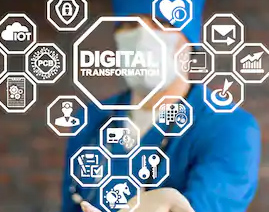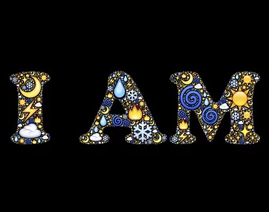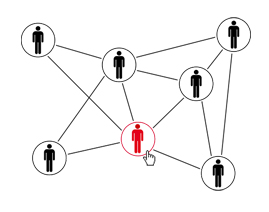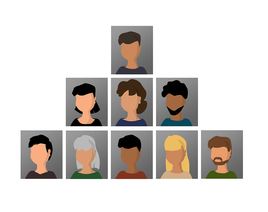Let's not confuse loyalty with longevity
It is interesting that the issue of loyalty in the workplace is still an issue for many leaders in the 21st century organisation. Allow me to weigh in on this topic.
Understanding loyalty
The online Cambridge dictionary define loyalty as 'the quality of being loyal' and 'your feelings of support'. The emphasis is on the 'feeling towards', not on years of service. Unfortunately most people still define workplace loyalty with years of service.
Historically, employees in the past stayed long with a company for one of three reasons; jobs were scarce, work was seen as a means to an end (because our expectation of life is geographically bound) and they forged strong relationship with their co-workers. Scarcity of jobs made people value job security, people work for a living and the pace and type of work were slow and routine that people have time to forge strong relationships. So, people stayed because the organisation then provided them with what they need; a sense of security, friendship and a means for living.
Times have changed. Through education and the ability to travel, we are taught to find a job 'we love'. In a connected world, we are bombarded by messages of 'what we could be'. This increases ones' desire and wants. Job security is replaced by job satisfaction, working for a living is replaced by the 'opportunity to realize one's potential' and friendship is 'virtually' everywhere.
Is loyalty the real issue?
If you are a leader and focuses on loyalty, perhaps the issue isn't about loyalty but more about how them moving makes our job more difficult. Loyalty is a two way street. If we want loyalty, we need to give loyalty. Would you recommend your employee to another department if you know their interest is in another department or would you keep that information or even dissuade them so they can continue to help you achieve your goal? If you know there isn't any opportunity for your employee to move up in your organisation, would you get them to consider getting a job somewhere else that would help them achieve their ambition? If your answer to both this question is 'no', then perhaps your issue is not about loyalty but rather it is about making things convenient for you. A one way loyalty is akin to slavery, don't you think?
Loyalty to the relationship, not the organisation
Loyalty is an emotion and in my opinion, loyalty is to a relationship. While organisation is made up of people, more often than not, decisions made are based on 'sound decision making' (a nicer way to say don't allow emotion to be involved in the decision making). Organisations are a great place to develop skills and also understand how the world works BUT if you want loyalty, you need to invest in others.
Start with career conversations. Get to know your employee, find out what are they looking for, develop a plan which fulfills their needs and yours. This create a win-win partnership. If they give you more than you expect, that is a bonus. The benefit of this approach is that you are able to anticipate when your employee might move on and be prepared for it.
As an organisational leader, our job is to achieve the organisation's goal. As a person, our role is to develop others. Why can't we do both at the same time?
You May Also Like

The CMO of People
Many organizations are not getting the best out of their HR function. Ask a CEO, “What is your...

The Challenges of Hiring Future Ready Leaders and Russian Doll Theory of Hiring
One of the biggest challenges most companies face today is hiring transformational leadership talent...

Why Do Most Innovation Programmes Fail?
What do companies do when a new boss says “Innovation has to be part of our DNA”? Here ...

The Greatest Resource any Organization has is the Creativeness of People
For too many years people have been treated as expense items instead of highly valuable resources. T...

How To Quit A Job You Love
It is not easy to quit a job you love. Even with a new dream job in-hand, cutting the cord that conn...

Take on Mistakes
Yes, we do say mistakes teach you a lot and you shouldn’t be afraid of making mistakes. But we...

Five Stages Of Organization Evolution And Key Characteristics And Concerns At Each Stage
Organizations almost always progress through five more-or-less well-defined evolutionary growth stag...

Managing in Multi-Cultural Environment
As several companies expands the business overseas, it is crucial to understand how to run the busin...

Crossing Corporate Cultures Creativity In Organizations Across Industries
Every market has its own unique business practices. People working in different business sectors dev...

Four pillars of Yoga for holistic health
Every human is unique; therefore it is necessary for each of us to find out for ourselves how we can...

Brave to Lead Like a Girl
All of us are dealt a unique deck of cards. Our aim is to identify our strengths and play those card...

How do you Extend Influence to Others and Change Lives?
You Change Lives When You Empower Others! (Extending Influence #1) When you empower others you chan...

How Important is Vision in a Successful Life?!
Understanding Vision (How Important is Vision #1) How do you communicate and give vision to ...

How do you Extend Influence to Others and Change Lives?
You Change Lives When You Empower Others! (Extending Influence #1) When you empower others y...

High Potentials vs High Performers
A Leaders Guide to Identify the Differences Mistaking a high-performing employee for...

Is 7% good enough?
A topic discussed at the recent World Economic Forum was the reluctance of male executives to mentor...

Learning & Development as Part of a (Digital) Transformation Strategy
The global workforce is constantly evolving to support a knowledge based, digital economy. Due to th...

The Future of Work – Digital Nomads and the Gig Economy
It is estimated that within a short couple of years, a large portion of the workforce (estimated to ...

Political Correctness towards Civility To be, or not to be, politically correct...
We can incidentally praise or criticize others depending on how we say it, the word choice or expres...

The Attitude of Gratitude - Replying does not mean Answering
The Attitude of Gratitude - Replying does not mean Answering In the ever increasingly connected di...

(Work-Life) Balance or Harmony (! / ?)
(Work-Life) Balance or Harmony (! / ?) Welcome to the world of Work-Life Harmony, beyond Work-Life...

Making Board Meetings More Agile
Making Board Meetings More Agile Given my belief that the world we live in today has changed irreve...

It's Good To Fail
It's Good To Fail I want to share with you something different from a normal convocation speech...

Four Lifehacks To Be More Productive Now
Four Lifehacks To Be More Productive Now Here are four daily life-hacks to help you to be more pr...

A leader sets an example, a leader doesn’t just order things, he does it so that others can do it
A leader sets an example, a leader doesn’t just order things, he does it so that others can do...

How would you end Executive Loneliness?
How would you end Executive Loneliness? What is the hardest part about being a leader? Altho...

Leadership Soft Skills Required for Business and Personal Success
Leadership Soft Skills Required for Business and Personal Success We often get asked, “What s...

New-G Leaders: Remember the Cow
New-G Leaders: Remember the Cow "Cow Don't Drink Water, Cannot Push Cow Head Down"&nbs...

Google your self
What are your key leadership attributes? The beliefs and behaviours that make you unique and success...

Culture is not enough … Get the right culture
A few years ago in Europe I asked a group of business leaders if they had the right culture. S...

How Leaders Can Create a Culture of Agile Collaboration to Win in a VUCA World
China growth-deceleration, the normalisation of monetary policies on the USA, tepid economies in Eur...

Is LinkedIn Improving Itself Out of Business?
I still remember the day I joined LinkedIn. A friend of mine called in frustration and asked w...

Life is the Name. Transformation is the Game.
Over the past half a century, I come to realize life is about having gratitude and resilience. We ne...

How to handle negativity and negative colleagues at work
In arithmetic's, negative into negative equals positive. But that’s just in arithmetic'...

ADAPT or PERISH: It is time for HR professionals to decide and create a new function or move out of the way!
Artificial intelligence in recruitment and performance management giving employees their key deliver...

Leadership Confidence in Times of Uncertainty
How do you successfully lead an organization in uncertain challenging times? Unparalleled st...

Insights for Making Working at Home Work!
How can business and HR leaders manage challenges and find opportunities in the new realities of wor...

The Real You Is Not Really You…
The Real You Is Not Really You… We tend to see and act with our surrounding based o...

3 Powerful Lessons To Make A Successful Career Out Of Your Passion
It Feels Like a Dream As I went on stage today to receive the Asia's Most Talented Coaching Lea...

How to Recover Your Direction - a case study during COVID19
What really happened 5 days ago I set myself a new challenge. Coronavirus had fundamentally changed...

Career Tips, Please
Last week, I was tagged by the fab Tim McDonald in a LinkedIn post asking to share some pointers for...

Impact of AI on the workforce Pre and Post the Pandemic
With the sudden advent of COVID-19 - a global crisis of unprecedented scale, organisations now are c...

Career Kickstart
The first job you land could be the most important decision you make in your career. I have seen th...

Peter Principle - Are you a victim or Perpetrator?
The Peter Principle – Who do YOU Blame? In my junior years of business, many times clients an...

4 Best Practices CEOs and Public Speakers Can Learn from Athletes
What struggles do CEOs and public speakers have in common with athletes? For one, there’s the...

Who do you want to be in COVID-19?
Whilst reviewing friend’s pages on Facebook, previous colleagues, mentors and my business netw...

TRUST – The core enabler that influences and inspires your team
These are certainly extraordinary times for leaders. What do employees need from leaders? In...

On Mentoring
I attended a conference some years back. At one point when the speaker asked, “How many of us...

Men of Faith
Mankind is meant to create, both with their body and mind because that creates balance within. It ke...

What Being on TED Taught Me About Comfort Zones
“In order to grow, you’ll need to step outside your comfort zone.” We’ve al...

3 Tips for Setting and Achieving Goals
Last week I wrote about when setting goals for 2021 we should Go Big or Go Home because it...

Never ask employees what would make them happy at work. Do this instead...
Most managers have realized by now that happy workplaces are more productive, more creative, attract...

How to Choose the Right HRMS Product/Platform
The size of the business has become irreverent when it comes to the technology embracing, to remain ...

So, #IWD is done - where to next?
This week saw a record number of events to mark International Women's Day by organisations - bot...

The trauma of being “made redundant”
At work, there’s nothing quite as horrifying as the experience of being “made redundant&...

My Hopes and Dreams for Malaysia in 2021
Let’s face it – 2020 was not what we envisioned it to be. Since the start of last year, ...

What could post COVID mean for organizations?
This article was co-authored by Dave Ulrich. During this time of limited human interaction, we...

The foolproof way to get a new team to start collaborating, quicker – even in hybrid work environments!
The >#wfh environment does not give us enough organic opportunities to break the ice with ...

Why Do I Keep Hiring the Wrong People?
According to Hudson Singapore, 37% of employers are expecting to increase headcount in the first hal...

Being a Business Woman was Never My Plan
I never wanted my own business. It was never in my plans. Sure, I have an MBA. And, yes I have a fam...

The great resignation or attraction! Is this about work-life balance....or work life purpose?
In recent weeks, there have been many studies by McKinsey, Microsoft and others published that indic...

Tune in to your self to stay tuned to work
I began writing an article on LinkedIn in early 2018 with the same title and saved it as a draft. Th...

Self-Leadership - The Critical Success Factor
What is the critical factor for any organization, large or small, to achieve success? Is it a clear...

Appreciation at Workplace
One of my early memories of my first job after graduating is that working life was terrible. Why did...

The 6 'HABITS' of highly successful “Assistants”
No matter what your title, it is most definitely how you think, what you say and your behaviour that...

AI Thinking I We are Heading Towards Self-Awareness Machine (AGI)
AI Thinking I We are Heading Towards Self-Awareness Machine (AGI) Neuralink It is a neurotechnolog...

Are Capitalism and Democracy Compatible?
Are Capitalism and Democracy Compatible? America prides itself on being able to run two great syste...

The Neurodiverse An Untapped Pool of Exceptional Talent
Our understanding of the brain and how it works so magnificently, has increased exponentially over t...

Everyone's a Great Writer Now! So Why Does Reading Feel So Empty?
Everyone's a Great Writer Now! So Why Does Reading Feel So Empty? AI can make anyone sound like...








Peter Isaac
Chief Executive Officer
Let's not confuse loyalty with longevity It is interesting that the issue of loyalty in the workplace is still an issue for many leaders in the 21st century organisation. Allow me to weigh in on this topic. Understanding loyalty The online Cambridge dictionary define loyalty as 'the quality of being loyal' and 'your feelings of support'. The emphasis is on the 'feeling towards', not on years of service. Unfortunately most people still define workplace loyalty with years of service. Historically, employees in the past stayed long with a company for one of three reasons; jobs were scarce, work was seen as a means to an end (because our expectation of life is geographically bound) and they forged strong relationship with their co-workers. Scarcity of jobs made people value job security, people work for a living and the pace and type of work were slow and routine that people have time to forge strong relationships. So, people stayed because the organisation then provided them with what they need; a sense of security, friendship and a means for living. Times have changed. Through education and the ability to travel, we are taught to find a job 'we love'. In a connected world, we are bombarded by messages of 'what we could be'. This increases ones' desire and wants. Job security is replaced by job satisfaction, working for a living is replaced by the 'opportunity to realize one's potential' and friendship is 'virtually' everywhere. Is loyalty the real issue? If you are a leader and focuses on loyalty, perhaps the issue isn't about loyalty but more about how them moving makes our job more difficult. Loyalty is a two way street. If we want loyalty, we need to give loyalty. Would you recommend your employee to another department if you know their interest is in another department or would you keep that information or even dissuade them so they can continue to help you achieve your goal? If you know there isn't any opportunity for your employee to move up in your organisation, would you get them to consider getting a job somewhere else that would help them achieve their ambition? If your answer to both this question is 'no', then perhaps your issue is not about loyalty but rather it is about making things convenient for you. A one way loyalty is akin to slavery, don't you think? Loyalty to the relationship, not the organisation Loyalty is an emotion and in my opinion, loyalty is to a relationship. While organisation is made up of people, more often than not, decisions made are based on 'sound decision making' (a nicer way to say don't allow emotion to be involved in the decision making). Organisations are a great place to develop skills and also understand how the world works BUT if you want loyalty, you need to invest in others. Start with career conversations. Get to know your employee, find out what are they looking for, develop a plan which fulfills their needs and yours. This create a win-win partnership. If they give you more than you expect, that is a bonus. The benefit of this approach is that you are able to anticipate when your employee might move on and be prepared for it. As an organisational leader, our job is to achieve the organisation's goal. As a person, our role is to develop others. Why can't we do both at the same time?